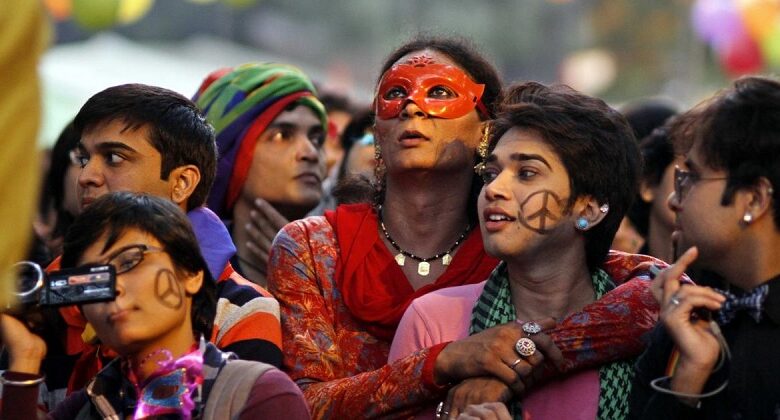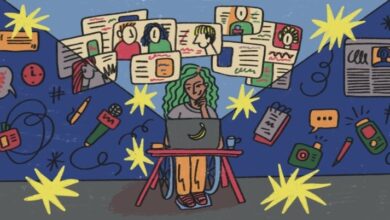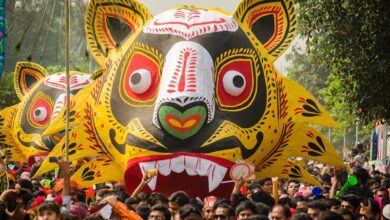Navigating Hurdles: The Challenges Faced by LGBTQ Individuals in India

By AGNIBEENA GHOSH
The path to self-acceptance and coming out as LGBTQ can be filled with both support and obstacles. In many parts of India, despite increasing education and awareness, the journey for LGBT adults is fraught with formidable challenges. From workplace bullying to family persecution, the struggles faced by individuals admitting their sexual orientation are deeply concerning.
Bullying, a menace that is often associated with schools and childhood, unfortunately extends its reach into the lives of many LGBT adults. Workplaces can become breeding grounds for discrimination, with lesbian women facing ostracism and gay men enduring offensive jokes and harassment. Even in their own neighbourhoods, verbal abuse is an unfortunate reality for many. Reports have exposed the horrifying experiences of LGBT individuals in rural households, where coming out can lead to persecution and even honour killings. Fearing the wrath of their families, some choose to flee their homes in search of safety and acceptance.
While some teenagers find acceptance and support from their parents and communities during gay pride parades, others are not as fortunate. Shockingly, some LGBT girls fall victim to crimes like corrective rapes perpetrated by their own family members. Rather than being embraced for who they are, lesbian and gay individuals are subjected to cruel practices like conversion therapy, often endorsed by religious leaders.
These challenges create a hostile environment that makes it difficult for individuals to come out openly in their families and communities. To create a more inclusive society, it is imperative to eradicate such harmful practices and crimes. Support and acceptance should be offered to every individual within their own communities, allowing them to live their lives authentically and without fear.
Family acceptance is a crucial pillar in the journey of an LGBTQ individual. For some, disclosing their sexual orientation to their loved ones brings relief and emotional support. Unfortunately, this is not always the case in India. Despite the changing societal attitudes, many families continue to struggle with accepting their LGBTQ members. The reasons for this lack of acceptance can be deeply rooted in cultural, religious, or traditional beliefs.
Coming out to family members is often seen as a brave step towards self-expression. Yet, for many, it can be a daunting and fearful experience. The risk of being disowned, ostracized, or subjected to violence looms large, leading some individuals to remain closeted to protect themselves from potential harm. In such circumstances, LGBTQ individuals may find solace in support groups and organizations that provide safe spaces for them to express their identities without judgment or discrimination.
Beyond family acceptance, the societal landscape also plays a significant role in shaping the experiences of LGBTQ individuals in India. While some cities and regions have made progress in embracing diversity, rural areas may still lag behind in accepting alternative sexual orientations. In such communities, the fear of being labelled an outcast or being targeted for hate crimes can be overwhelming. The LGBTQ+ community in India faces severe challenges due to exclusion and prejudice. This manifests in various ways, including earlier school dropout rates, leaving their family and home, limited access to regular employment opportunities, and feelings of isolation in their neighbourhoods. Additionally, many LGBTQ+ individuals lack awareness of their rights and have limited access to essential services.
While social media and corporate initiatives in urban areas have increased awareness of LGBTQ+ rights, the situation remains precarious, especially for transgender individuals and lesbian women. While the voices of urban LGBTQ+ individuals are amplified through various online and offline platforms, their struggles are just a fraction of the many difficulties the community as a whole endures.
The quest for acceptance and equal rights is an ongoing battle for the LGBTQ+ community, particularly for transgender individuals. Prejudice and negative judgment against the community are still widespread, leading to misconceptions and misconceived notions about their identities and experiences.
The Indian government has taken some significant steps to advance and normalize the LGBTQ+ community, passing crucial legislation to protect their rights:
1) Removal of Section 377 of the IPC, 1860:
In a landmark ruling in Navtej Singh Johar v. Union of India, the Supreme Court of India partially decriminalized Section 377 of the Indian Penal Code, 1860. This decision marked a significant milestone in the fight for equality and acceptance of the LGBTQ+ community. Before this ruling, Section 377 criminalized same-sex relations, impacting the lives of homosexual individuals. The Apex Court’s ruling in the KS Puttuswamy case also emphasized the right to privacy, further safeguarding the fundamental rights of LGBTQ+ individuals.
2) The 2019 Transgender Persons (Protection of Rights) Act:
The transgender community has a long history in Indian mythology, but during the British era, they faced violence and discrimination, pushing them to the margins of society. In a move to restore their status and rights, various rulings and laws have been enacted. The landmark ruling of National Legal Services Authority v. Union of India recognized transgender individuals as the third gender, leading to the first-ever bill aiming to protect their rights in 2014. However, it lapsed in 2016, causing a delay in the full implementation of rights for transgender individuals.
3) Reservations for transgender people:
Following the Supreme Court’s ruling in the National Legal Services Authority v. Union of India case, transgender individuals were officially recognized as the third gender. This recognition paved the way for them to become eligible for reservations under India’s quota policy. As a result, transgender individuals are entitled to economic and educational accommodations as per the Indian Constitution.
Despite these legislative advancements, there is still much work to be done in ensuring the complete acceptance and inclusion of the LGBTQ+ community in Indian society. Discrimination, prejudice, and misconceptions persist, hindering their ability to live authentic lives without fear or stigma.
It is imperative to remember that no individual is born with a choice to decide their sexual orientation. Hence, punishing them for what is an integral part of their identity is akin to denying their humanity. It is absolutely necessary to foster a more inclusive and accepting society, which has the capability to embrace individuals for who they are and who they love. Support and representation from all sections of society, including the media, corporations, and educational institutions, are vital in creating a safe and welcoming environment for all individuals, regardless of their sexual orientation or gender identity. It is only through collective efforts and the dismantling of barriers that we can strive towards a truly inclusive India for all its citizens.






